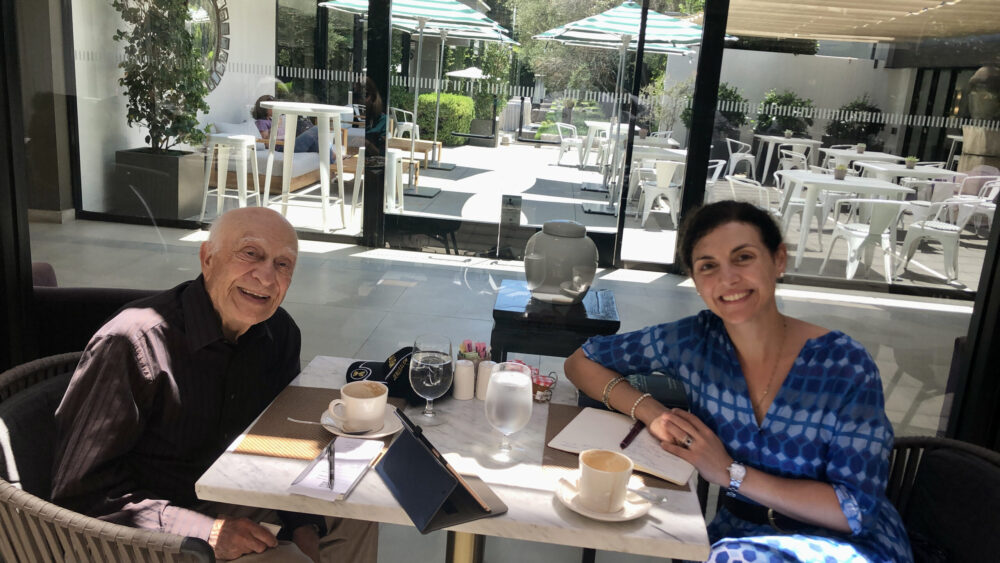Recently I had the pleasure of meeting Joe Samuels in Los Angeles. Joe is an author and businessman, but more importantly for me, a fellow Jewish Iraqi.
In his nineties, Joe is sprightly and warm. He speaks like my family, with an English accented by a foreign Arabic lilt belying his origins. Joe grew up in Baghdad and was smuggled out when he was eighteen in 1949, hidden under hay in a rowboat with a group of fleeing Iraqi Jewish youths. For me he held a wealth of Jewish Baghdad knowledge, he could answer my questions about once upon a time.
Before we met I had read his beautifully written, evocative memoir, “Beyond the Rivers of Babylon: My Journey of Optimism and Resilience in a Turbulent Century”, where Joe writes about his every day life as a Jewish boy growing up in Baghdad in a traditional family who were poor, but grew wealthy by the time he was ten as his father’s fabric business flourished. He also describes the traumatic, antisemitic events, especially the Farhud pogrom of 1941, all of which led to the displacement of 120,000 Iraqi Jews in 1950-52.
However much I love reading Iraqi Jewish stories, my greatest education is live interviews. It is the way a story is told that informs me of its emotional power and meaning; what is really important to a person. So as I sat with Joe over coffee and we discussed meals in Baghdad I paid special attention as Joe teared up when he related how his mother always, even before they were wealthy, saved plates of home cooked food for beggars who knocked at their door. I knew that his tears were about missing his mother and the depth of kindness and soul Iraqi food holds. His tears were for a time when it was not just about how food tasted, but about how it was lovingly shared with family and strangers.
This is why I search for stories of Jewish life in Baghdad, I want to put myself, the values I grew up within context. Cooking abundantly and sharing food is where I come from. Speaking to Joe reminded me of how much I wasn’t told by my family about life in Iraq. Reading his book also explained why my family was silent, why Joe himself was silent about his Iraqi Jewish experiences, as he writes in his preface,
“Until I was 76, I didn’t intimately share the events that shaped my life. Not even my wife knew the whole story. The first time I wrote about my escape from Iraq was after I enrolled in a memoir writing class at Santa Monica College Emiritus, in 2007.
As I read my story to the class, I cried through. those were bittersweet tears that I had repressed over decades, which on the one hand were for the mourning of a beautiful life in Baghdad, and on the other hand, for the joy of liberation from the very same place.”
I thank Joe for writing his book, which is being translated into Arabic, and for his generosity in meeting me. I thank him most of all for breaking his silence and speaking about his Iraqi Jewish experiences such as the Farhud, (watch Joe speak about it for the LA Holocaust Museum here), and the trauma of being a displaced refugee. Most of all I thank him for sharing the life view I grew up with. “Be happy,” my grandmother would say like a commandment, because for her life isn’t about painful remembering, rather, like Joe, life is about creating a loving, optimistic future, despite a painful past.



